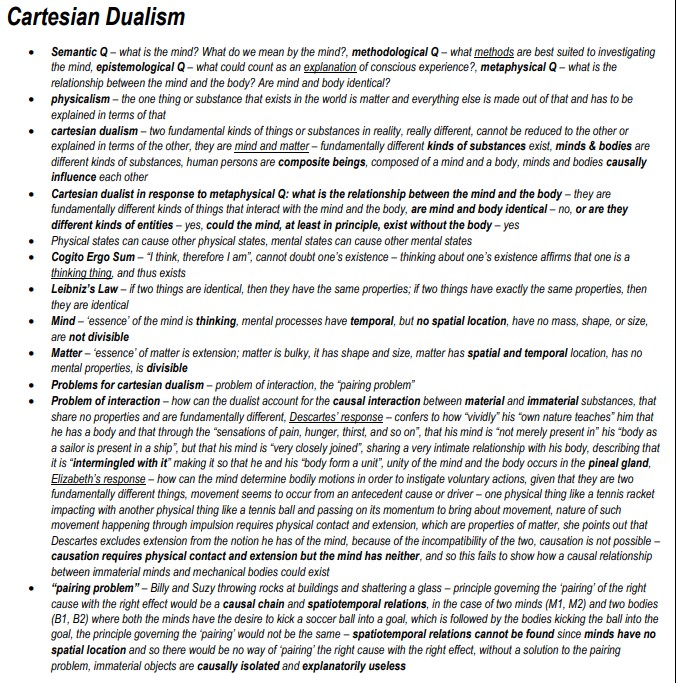The Philosophy of Mind
The note summarises the Philosophy of Mind exam notes, covering all the topics and weeks studied throughout the semester. The topics include Cartesian Dualism, Behaviourism, Identity Theory, Functionalism, The Causal Theory, Qualia & the Knowledge Argument, Bats & Zombies, Panpsychism, Intentional Systems & the Intentional Stance, and Other Minds & Other Kinds of Minds. The exam notes are specifically designed to help students prepare for the exam and include concise content that covers the main and relevant information needed. The note emphasizes the importance of studying these notes to ensure thorough preparation for the exam.
Excerpt:
The Philosophy of Mind
Cartesian Dualism
• Semantic Q – what is the mind? What do we mean by the mind?, methodological Q – what methods are best suited to investigating the mind, epistemological Q – what could count as an explanation of conscious experience?, metaphysical Q – what is the relationship between the mind and the body? Are mind and body identical?
• physicalism – the one thing or substance that exists in the world is matter, and everything else is made out of that and has to be explained in terms of that
• cartesian dualism – two fundamental kinds of things or substances in reality, really different, cannot be reduced to the other or explained in terms of the other, they are mind and matter – fundamentally different kinds of substances exist, minds & bodies are different kinds of substances, human persons are composite beings, composed of a mind and a body, minds and bodies causally influence each other
• Cartesian dualist in response to metaphysical Q: what is the relationship between the mind and the body – they are fundamentally different kinds of things that interact with the mind and the body. Are mind and body identical – no, or are they different kinds of entities – yes, could the mind, at least in principle, exist without the body – yes
• Physical states can cause other physical states, and mental states can cause other mental states
• Cogito Ergo Sum – “I think, therefore I am”, cannot doubt one’s existence – thinking about one’s existence affirms that one is a thinking thing, and thus exists


Reviews